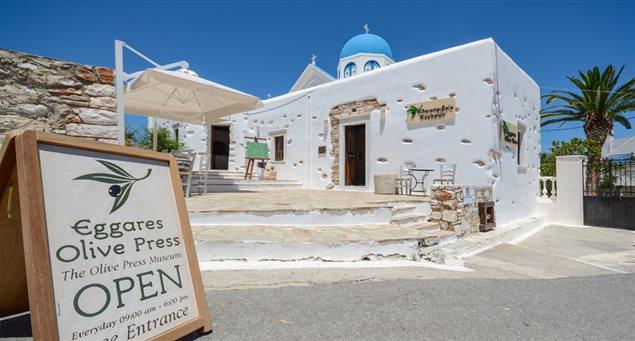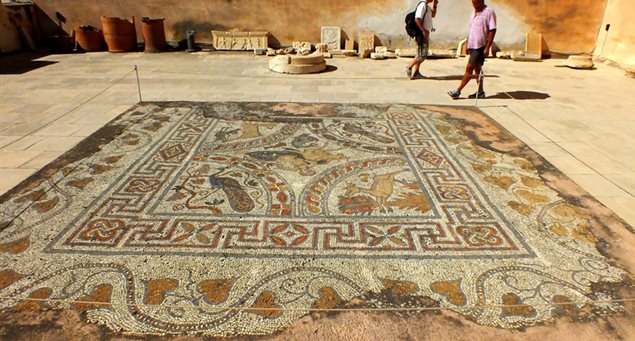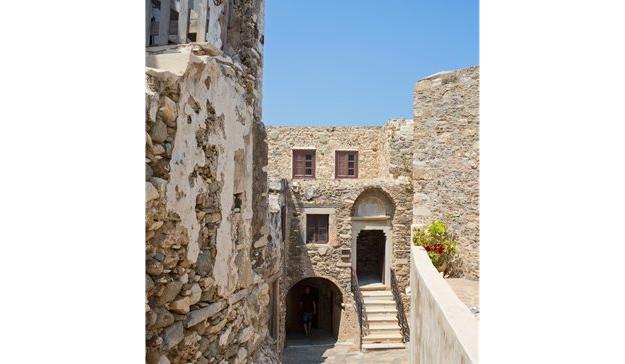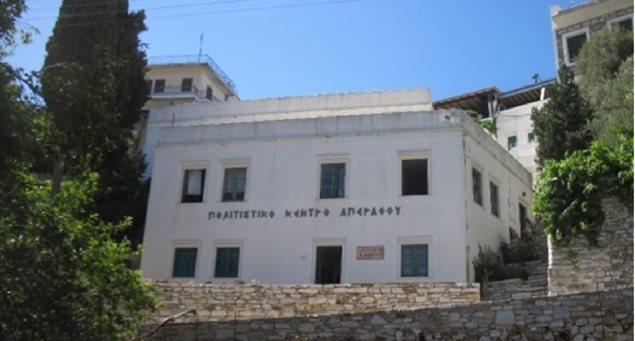
Τhe Geological Museum of Apeiranthos is located in the ground floor of the Cultural Centre
Entrance is free
Exhibits and geological maps provide information on the fascinating local geology, the lithology of various geological units of Naxos and the South Aegean, as well as on the significance of minerals, mineral commodities and processing products for the economy and the civilization.
The island of Naxos is a world-class example of a metamorphic core complex, famous for its km-sized migmatite dome and the fascinating concentric pattern of metamorphic mineral isograds. A rich variety of rocks and minerals appears in the island. Naxos has been the subject of many studies to understand the geological history of the Aegean domain. Hence it attracts the interest of geoscientists and geotourists, while many University students visit the island every year for fieldwork studies.
What’s to see?
The visitor – depending on his time and interests – can choose between exhibits, maps and posters, covering a wide range of geological topics related to the geology of Naxos and the South Aegean Sea.
The visitor begins his journey from the “Naxos Hall” and continues in the “Aegean and the World Hall”. The necessary information in Greek and English is given in a simple way, easy to understand by non-experts.
“Naxos Hall”: Thematic topics – exhibits
- The physical geography of the island, local climate and hydrology.
- The geological structure of Naxos: a geological map of the island is displayed with simplified explanatory text.
- Rock samples representative of the various lithologies of the Island.

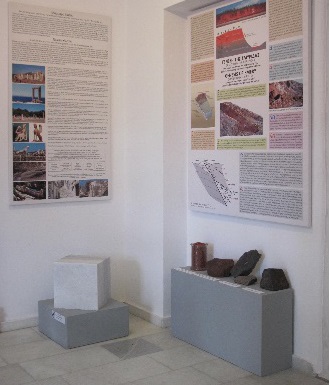
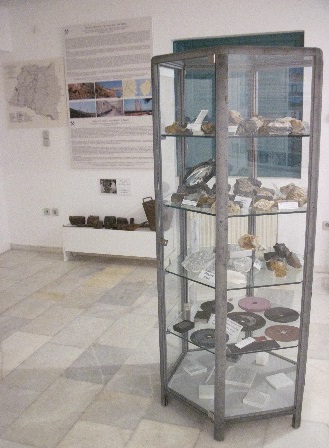
- The Naxian mineral commodities (marble, emery) to reveal the diachronic contribution of mineral exploitation to local economy and especially the development of the Cycladic civilization. Paleolithic artefacts made of chert as well as samples of the raw material from the famous Stelida site, an early prehistoric stone tool workshop in W. Naxos, thought to date back as far as 260,000 years ago.
- Emery and products produced using emery.
- Minerals of emery, and rock-forming minerals of Naxian lithologies.
- The history of emery exploitation in Naxos. Tools used by miners in the past.
- The genesis of emery is explained in a poster.
“The Aegean and the World Hall”: Thematic topics – exhibits
- Geology of the South Aegean Sea with emphasis in the “Attico-Cycladic Belt”.
Representative samples of rocks and minerals of the critical lithological units of the South Aegean islands are exhibited in the vitrines (Blueschist rocks, eclogites, greenschists, marble, gneiss, granitoids, volcanics of the South Aegean Active Volcanic Arc). Also on display are samples of ores, which from ancient times until today have been the subject of mining and processing, contributing to the local and national economy (specimens from abandoned and active mines and quarries of Lavrion, Milos, Serifos, Naxos, Paros, Siphnos, Andros, Kythnos etc).
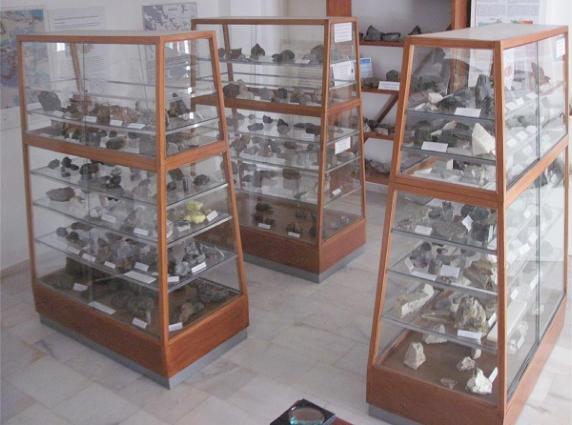
- A collection of mineral and rock samples with a special scientific and educational significance, coming from various units of the South Aegean. These include samples mainly from Serifos, Lavrion, Syros, Mykonos, Tinos, Milos, Paros, Siphnos, Santorini, Amorgos, Andros, South Evia, Kythnos.
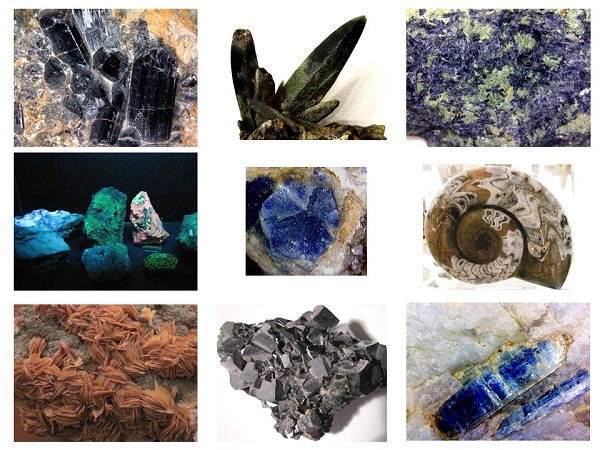
- A collection of strikingly beautiful samples of minerals and rocks from the Aegean area and more than 20 countries of the world.
- Fossils found in the Aegean and the world.
- A poster to explain the “Rock Cycle” and a collection of typical examples of rocks.
- A poster indicating the significance of minerals in our everyday life, with typical samples of minerals and ores.
- A complete collection of samples of Greek Mineral Commodities and products produced after their processing, as well as representative samples of Greek marbles.
- Rocks and minerals from the Troodos Ophiolite Complex (Cyprus) are exhibited separately in a vitrine.
- Fluorescent minerals (under UV light).
Educational program
Bringing children to the museum opens their eyes to the world of minerals. They have the chance to learn about the significance of minerals in our everyday life and their contribution to the development of the Aegean civilization. Students and young visitors of the Museum are given the opportunity to attend an educational program focusing on “Mineral Identification”, the “Marble of Naxos” and “Emery”.
| The Geological Museum of Apeiranthos belongs administratively to the “Municipality of Naxos and Small Cyclades”. It worked as a small collection of minerals, rocks and ores from 1964 in the building of the Primary School of Apeiranthos with the initiative of Manolis Glezos. The “Naxos Ηall” was established in 2016. The old hall of the Geological Museum of Apeiranthos was restructured to accommodate the exhibition “The Aegean Sea and the World”. The design of the whole exhibit, the composition of informative posters, and the acquisition of new mineral and rock samples, was all made possible thanks to the initiative and contribution of Nikolaos Skarpelis, Professor Emeritus of Economic Geology of the National and Kapodistrian University of Athens. |
| |
May – September | |
11:00-16:00 |
| |
Apiranthos | |
22850 61725 |


